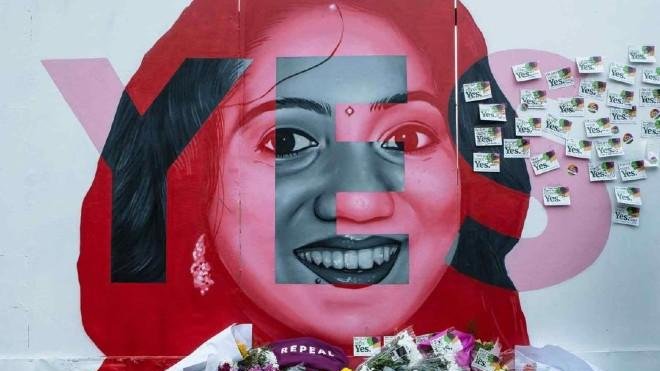March for Savita for reproductive rights to take place tomorrow
 Image: Dictionary of Irish Biography
Image: Dictionary of Irish Biography
March for Savita for reproductive rights to take place tomorrow
Words: Ellen Kenny
Ireland will have the chance to honour Savita Halappanavar’s death and memory, and remind ourselves that it can never happen again.
A march to honour Savita Halappanavar’s memory and advocate for further easing of abortion restrictions will take place tomorrow, October 29, at the Garden of Remembrance. Those involved will begin at the Garden of Remembrance before marching to the Dáil.
Organisers ROSA, the Social Feminist Movement, have described the march as an important opportunity to advocate for “health, equality and bodily autonomy on Savita’s anniversary.”
On October 28, 2012, Savita Halappanavar died of “severe sepsis, E.coli in the bloodstream and a miscarriage at 17 weeks”, according to the HSE investigation. Savita had been admitted to Galway University Hospital due to a miscarriage. Following complications, she repeatedly asked for an abortion as the pregnancy had been deemed unviable. However, doctors denied her an abortion as the foetal heartbeat was detected, making any termination illegal. One midwife is reported explaining to Savita, “this is a Catholic country”.
A HSE investigation found that there was “inadequate assessment and monitoring”, also saying she was not offered all management options.
Savita’s death marked a turning point when it came to fighting for bodily autonomy in Ireland, as her husband went public with her death and pro-choice activists advocated for legislation that would prevent another death.
In 2018 as the Eighth Amendment was repealed, an RTÉ poll revealed that 8 per cent of people who voted yes did so because of Savita’s death.
Reproductive rights after Savita
While the Eighth Amendment was repealed in 2018, there are still many barriers to safe and accessible abortions for women in Ireland. In July, the United Nations Human Rights Committee urged Ireland to reform several aspects of its current abortion laws. In particular, they expressed concern over the three-day waiting period and the lack of abortion services in some parts of Ireland.
Someone seeking an abortion must get official certification from a GP that confirms they are less than twelve weeks pregnant. Once they are certified by a GP, the pregnant person must wait three days before they get the abortion. If someone becomes more than twelve weeks pregnant during the waiting period, are no longer eligible for an abortion.
The United Nations also expressed concerns about the “alleged low percentage” of GPs providing abortion services. Ten per cent of GPs nationally have opted into providing abortion services, and half of Irish counties have fewer than ten GPs who provide the service.
The United Nations said that this is limiting the service for “girls in vulnerable situations and rural communities.”
Tomorrow’s protest will advocate for improvements in accessing abortions across Ireland.
Elsewhere on District: Germany announces plans to legalise recreational cannabis
